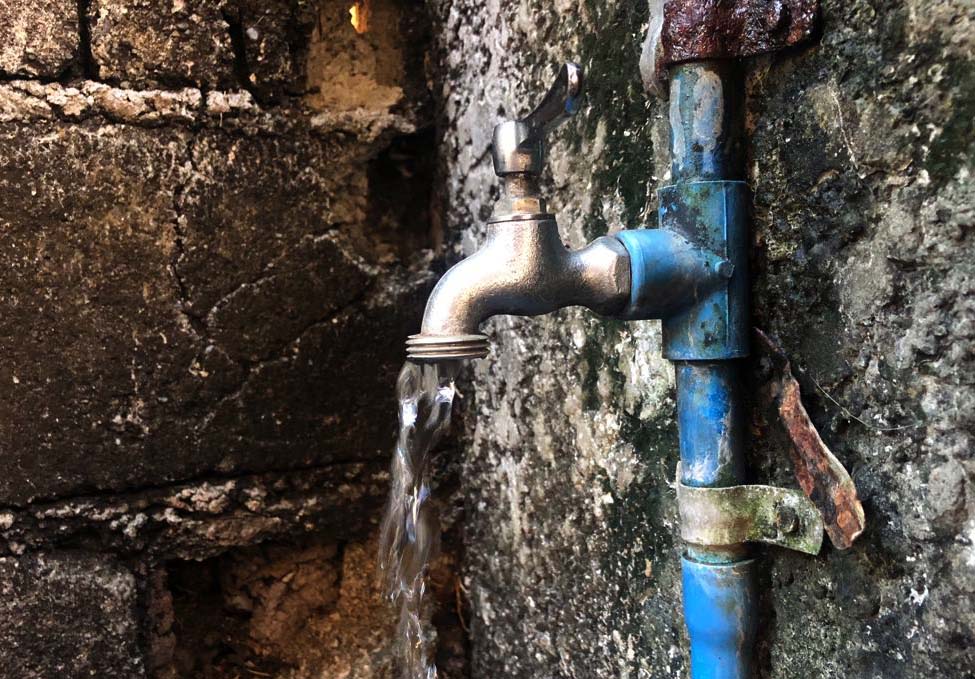Sticking to Duterte’s script, media misses the real failure in the water problem

PRESIDENT RODRIGO Duterte has been relentless in attacking Manila Water and Maynilad, the two concessionaire companies for water service in the metropolitan area since the 1990s. In December 2019, he began threatening them over supposedly onerous provisions in the concession agreements.
An issue involving a public utility demands more attention to the details of the agreements than could be found in most initial reports from the first week of December last year. (See “Duterte threats do not solve water problem”)
Most of the media remained on this track, even after information about the circumstances which led to the privatization of the water service; preferring to focus on what the president had to say.
Duterte was not present when the agreements were signed. Media yielding such prominent space to his accusations failed in providing the public a broader context to the issues involved. Still missing in much of the continuing coverage were sources who had more knowledge of the background. There was little said about the mandate that government had given the two companies in signing them on, and how the situation had changed in time.
Fixed on presidential quotes, the media’s framing of the story put the companies in the worst possible light – with the president’s intensified threats to take the owners of the two companies to court.
CMFR monitored reports from the three major Manila broadsheets (Manila Bulletin, Philippine Daily Inquirer and The Philippine Star); four primetime newscasts (ABS-CBN 2’s TV Patrol, CNN Philippines’ News Night, GMA-7’s 24 Oras and TV5’s Aksyon); as well as selected news websites from December 21, 2019 to January 5, 2020.
Two exceptions
In the period of the monitor, media continued to record Duterte’s accusations, which were made without reference to the background of why the two companies got involved in the water utilities business in the first place. Meanwhile, reports also failed to seek out other important sources who were privy to the crafting and the signing of the original concession agreements, including officials at the time whose insights could help the public understand this complex and technical issue.
CMFR found only two exceptions to the limited media reporting on the water issue.
Published in its business pages on December 23, a report by the Bulletin cited the views of former Metropolitan Waterworks and Sewerage System administrator Angel Lazaro who was with the government agency when the original concession agreements were signed. Lazaro acknowledged that circumstances had changed.
Among others, these include the huge investments made by the companies to incorporate infrastructure for waste water and the increased demand given the growth in the Metro Manila’s population.
With the passage of time, Lazaro admitted that the concession deals slid to obsolescence, which led to allegations that the contracts were onerous. In the article, Lazaro pointed out that the problem today is rooted in the diminishing sources of water and not its distribution, which is what Manila Water and Maynilad are supposed to be doing. He also pointed out the government’s failure to develop new sources of water. “The water concessionaires have their hands tied because proposals on development of new water supply sources had not been approved by the government,” Lazaro said.
A special report in the business pages of the Star, also on the same date, quoted Romero Bernardo who was a finance undersecretary during the Corazon Aquino and Fidel Ramos administrations. Bernardo said that the original contracts were not “sweetheart deals” as Duterte’s tirades imply, and were reviewed by several agencies and individuals from both the government and private sectors.
The extension of the concessionaires’ contracts was allowed under the concession agreements and by law. It similarly went through analysis and review by different government agencies for over a year, and public consultations were held before it was approved by then President Gloria Macapagal-Arroyo, he added.
Bernardo also explained that the rationale for the extension then was compelling, given the new waste water requirements set by the Clean Water Act and a Supreme Court mandamus requiring full sewerage coverage for the concessions. These needed more investments, the tariff rate impacts of which had to be mitigated. “By extending the contract through 2037, there is a longer period of recovery of these long life investments, and thus lower annual tariff adjustments,” Bernardo said.
The Star also recalled former President Ramos’ December 4 letter to Duterte in which he asked the government to honor the concession agreement.
The Bulletin and the Star’s accounts presented the facts. These reports were in contrast to Duterte’s oversimplified narrative of supposed corporate greed, the emphasis on which deflected attention from the government’s failure to find and develop additional sources of water.
Concessionaires were sufficiently cowed by the chain of charges and accusations. But media should have known better than to report Duterte’s misplaced anger without question.
Leave a Reply